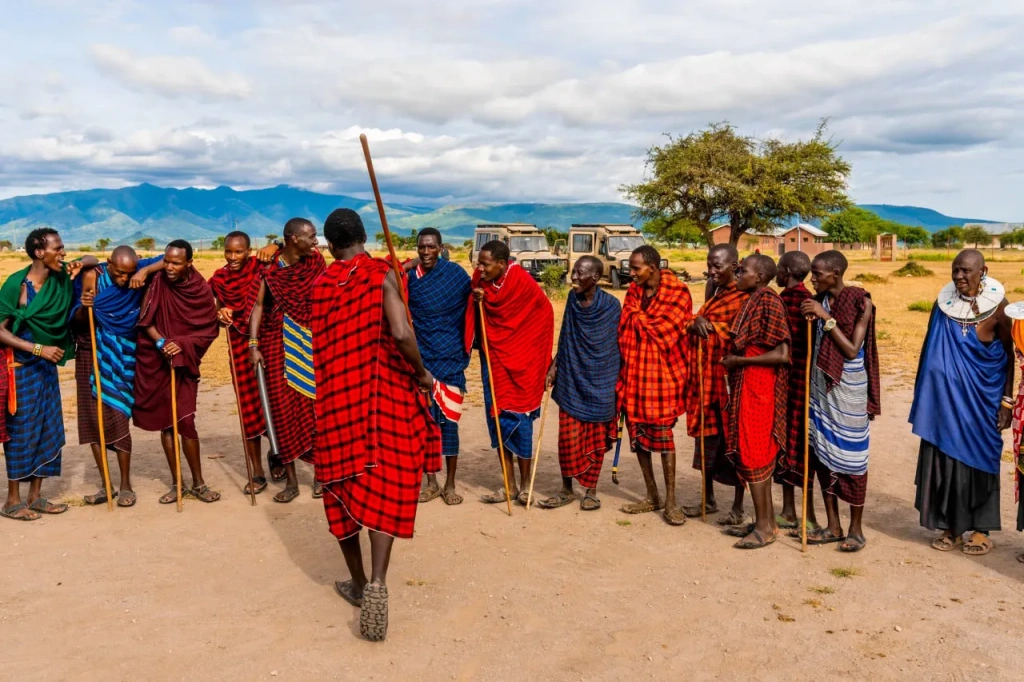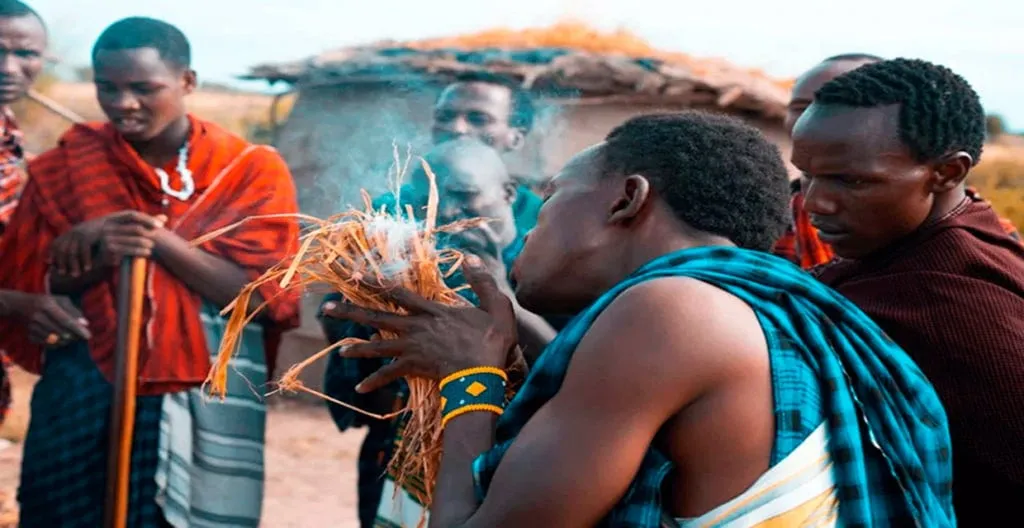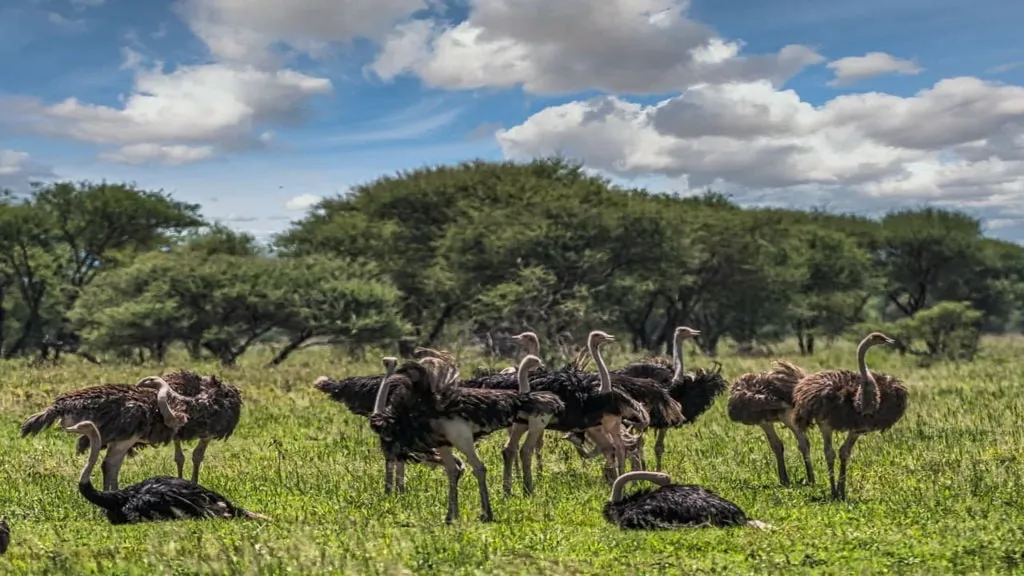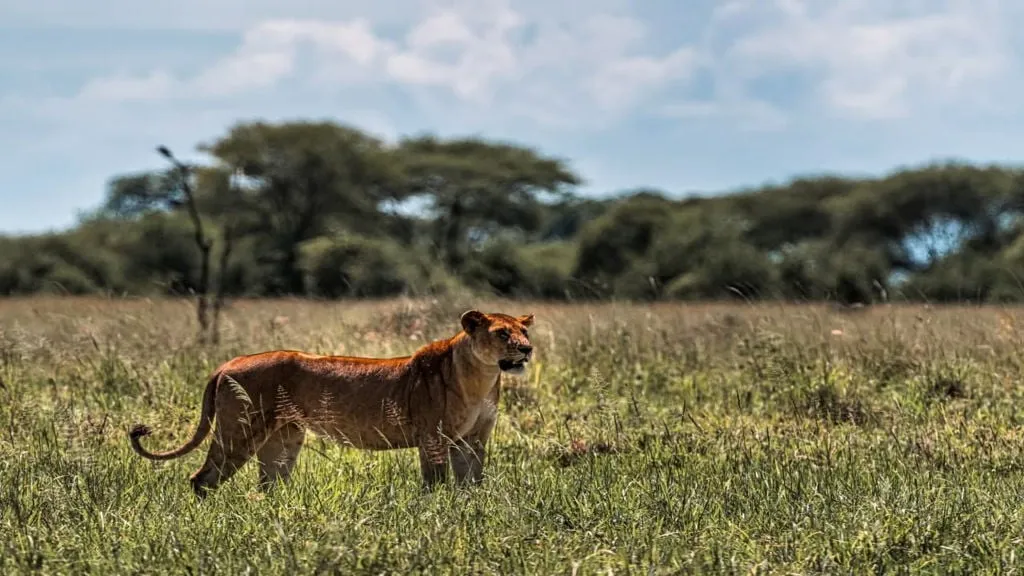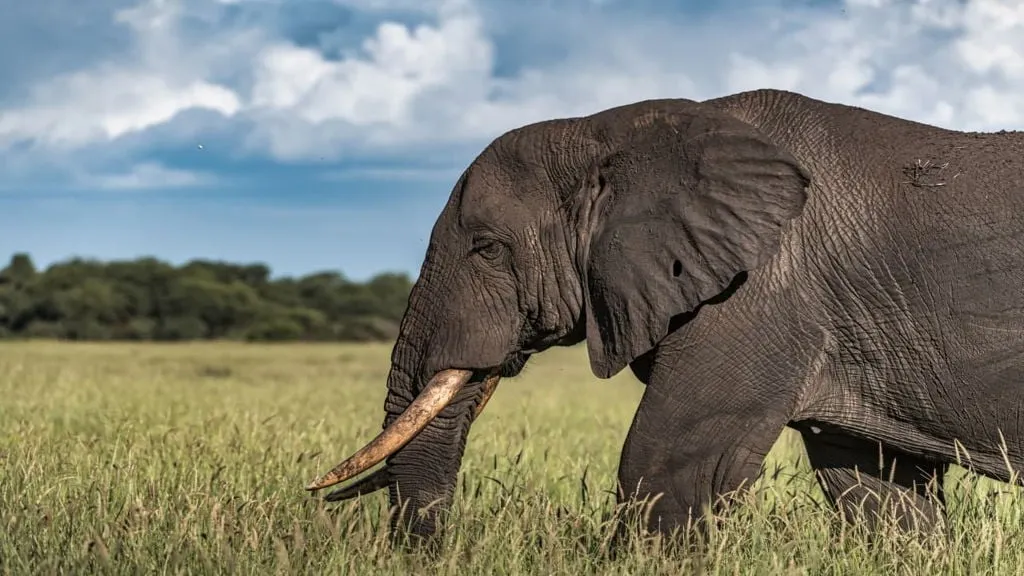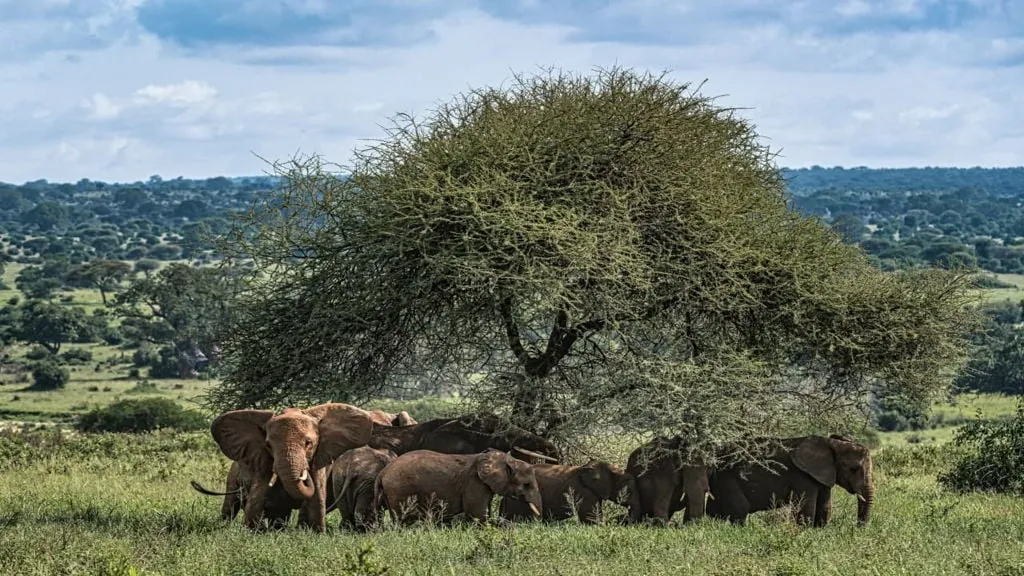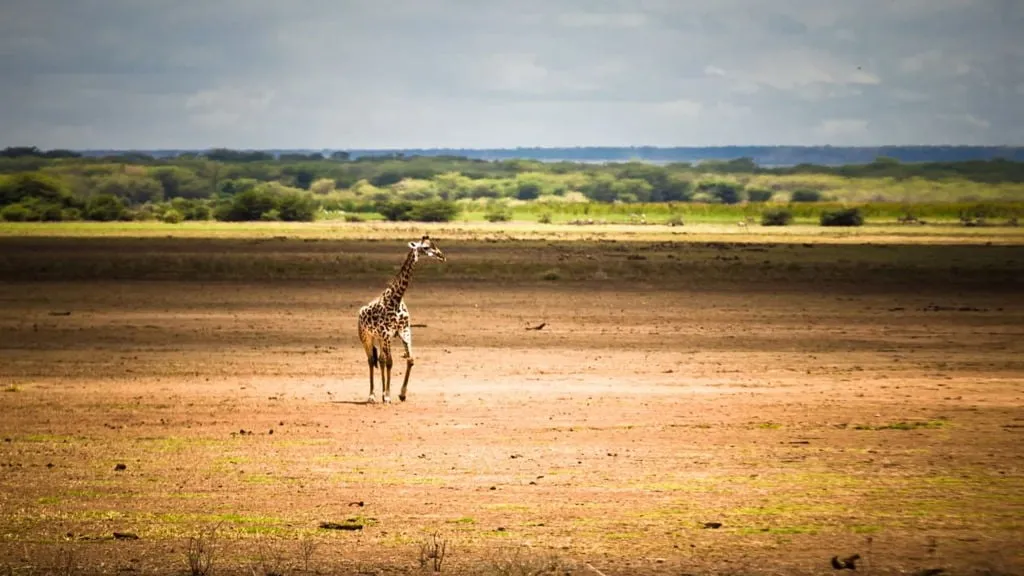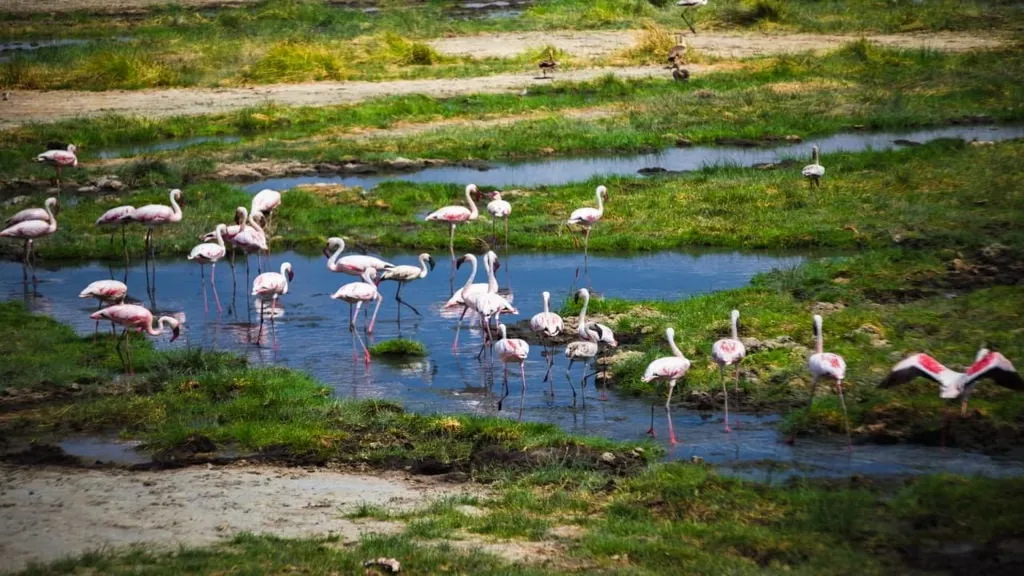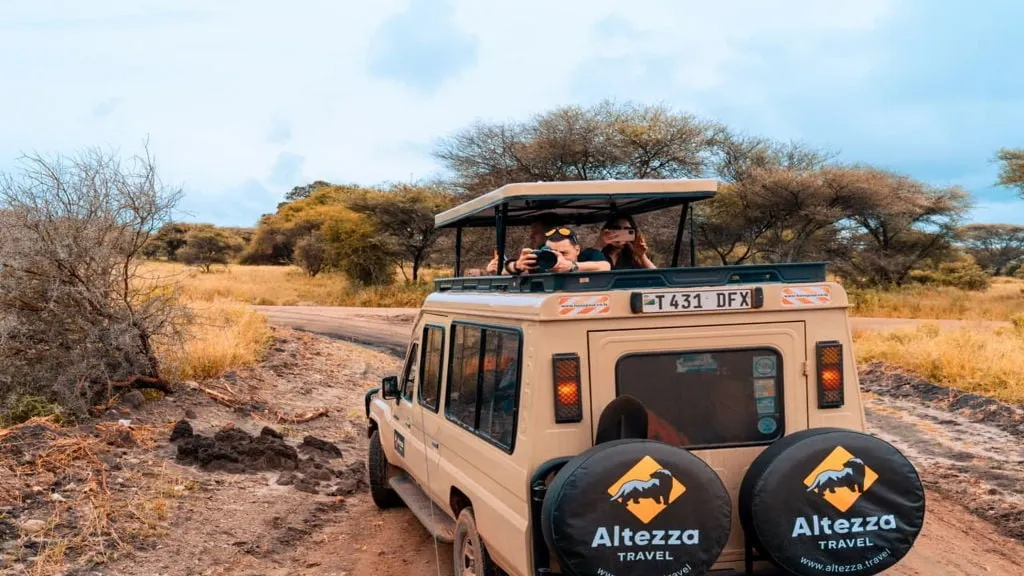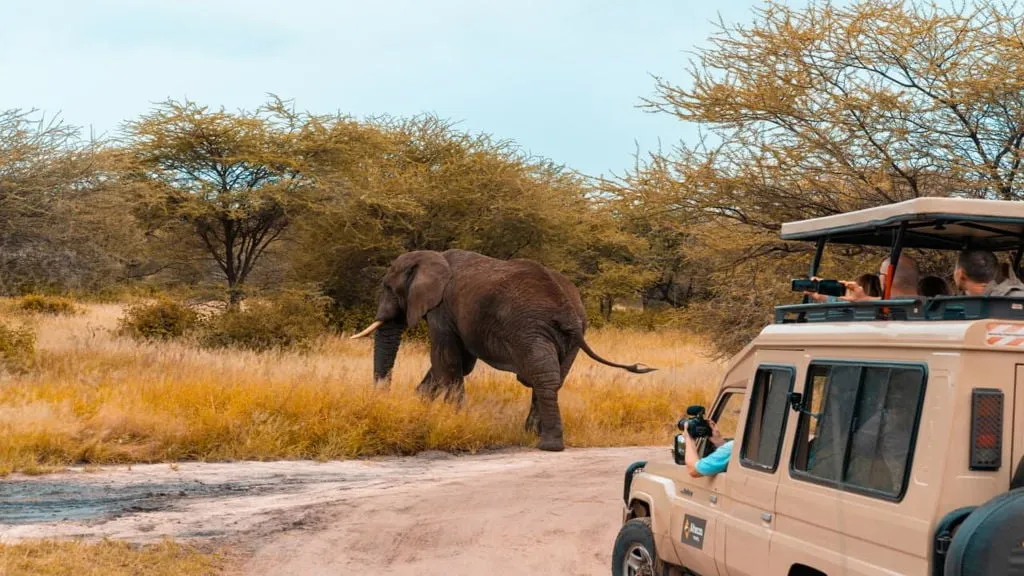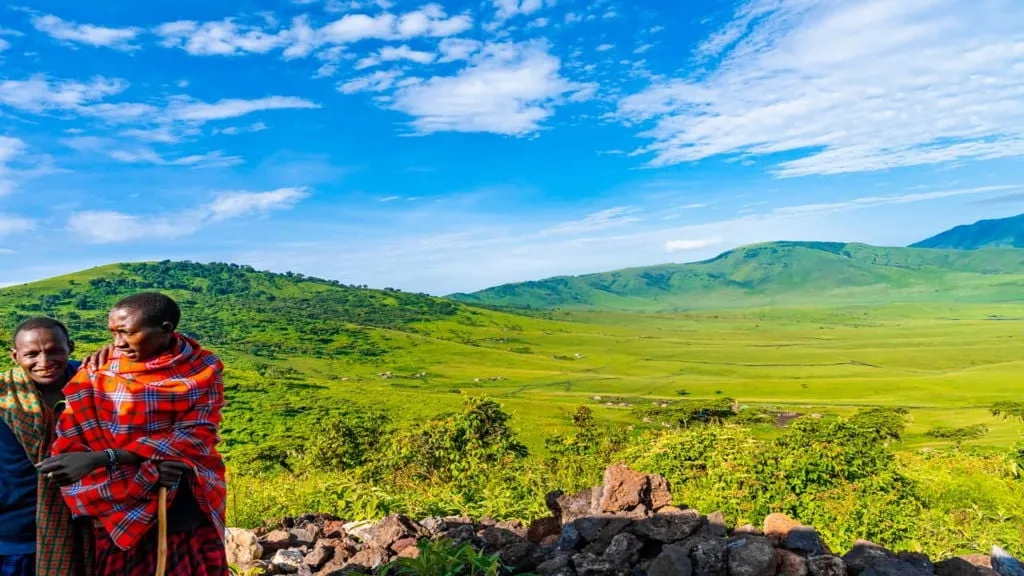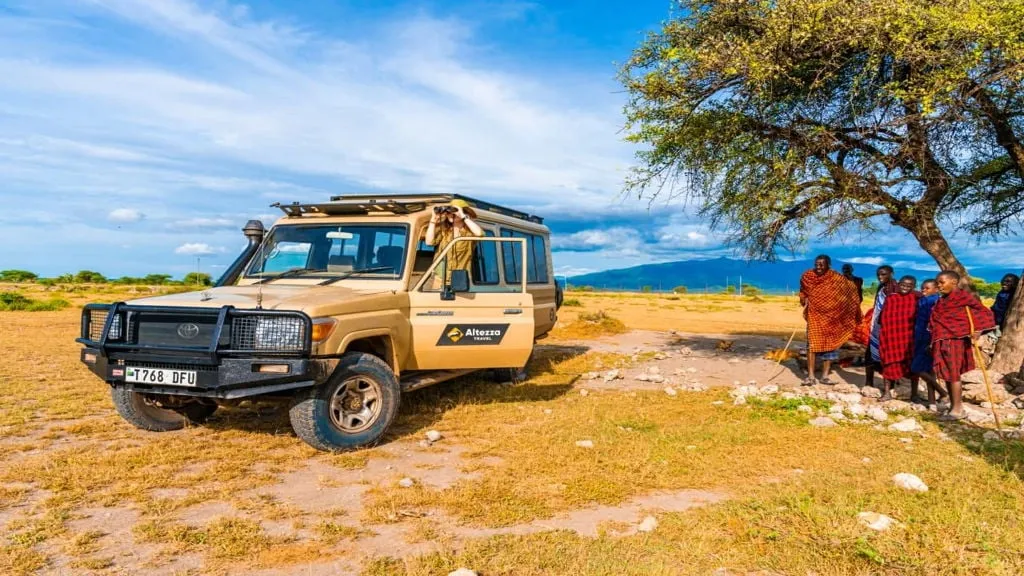Hotspot for Filmmakers
Tanzania has been attracting filmmakers for decades.
From Hollywood films, such as John Wayne’s Hatari (1962), to regular National Geographic documentaries, film crews continue to come to Tanzania to get incredible footage.
Tanzania has some special locales that attract scientists, anthropologists and geologists, as well as film crews. Lake Tanganyika, Mount Kilimanjaro, endangered wildlife, the annual Great Migration, the Hadzabe Tribe, the traditional Maasai community, the active volcano Ol Doinyo Lengai, and many more awesome features of Tanzania continue to draw.
Please know that professional camera crews and film-makers must obtain special permission from the government and pay additional fees. Note that the information below applies to filming in Tanzania mainland only. If you have a project in Zanzibar, you will need to get a special permit.
What filming doesn't require a permit
The key here is ‘professional’. If the intent of the film is for personal use, then you should be fine to take as many photos and videos as you can!
Filming that does not require special permits:
- Amateur or personal films
- Photos or videos made on your private video camera or mobile phone
- GoPro Cameras that are for your own personal use
What filming requires a permit
You should remember, however, that professional does not, in essence, mean “commercial”. It means everything filmed with use of more than the ordinary amateur cameras. Even if you are filming for an NGO or for fun, but use large cameras, a permit will be required.
If you are a professional photographer, film maker, videographer or documentary-maker or journalist, then please read the following information carefully.
- If your project is commissioned or contracted by another company
- If you are a journalist and intend to use photos or videos as part of your work
- If your project requires large cameras and equipment that must be set up in advance
- If you are intending to film with the use of a drone at any point (including for amatuer or personal use), you will need a special permit.
What permits are necessary?
For filming in Tanzania, several permits are required
Tanzania Film Board
This is the most important permit, and one which you must get first. It is only after receiving this permission that you will be eligible to be granted other permits.
Fees paid
All filmmakers must pay a fee of $1000 USD to the Tanzania Film Board.
The permit application must be submitted 30 days before the start of filming, and the processing may take up to 2-3 months. So make sure to file your application in advance.
If you need to expedite this process, it is possible. For $3000 USD, the application will be processed in as little as 7 days.
What information is necessary to get this permit
Provide all the necessary information when completing your permit application, to ensure you are granted permission and to avoid any delays. This information includes the following:
- Names of all crew members
- Synopsis of the film
- Names of any Tanzanian nationals you intend to use or interview in the film
- Locations where you plan to shoot
- Estimated dates of filming
Further, you must ensure that all crew members are able to travel to Tanzania. Being part of a film crew means that you are not able to enter Tanzania on a tourist visa, but instead you should come on a Business Visa, which allows visa holders to remain in Tanzania for 3 months. A Business Visa always requires an invitation from a registered host organization in Tanzania.
Validity of the Tanzania Censorship Board filming permit
Once the permit is issued, it will be valid for three months. It is necessary for you to complete all filming during this time-period, or re-apply for another permit.
How to get it
Applications should be submitted to the Tanzania Film Board in Dar es Salaam, the nation’s largest commercial city.
Many non-Tanzanians are not familiar with Dar es Salaam, as it is a big city. If you feel uncomfortable about dealing with this process and obtaining all necessary permits, Altezza Travel can help.
Since 2014 we have helped many organizations to get these permits, having processed over fifty applications in total. Our team is aware of all the pitfalls and intricacies of the procedure, and since we are based in Tanzania, our associates can secure the permit quickly and with no hassle. We have successfully received permits for the Red Bull projects, National Geographic Russia, various commercial photoshoots, journalists and other media projects.
Application forms should be endorsed by your country’s Tanzanian Embassy. If you do not have a Tanzanian Embassy in your country, then choose the Embassy that covers your country (usually found in a neighboring nation) to complete this application.
Copy of the film to be provided
All filmmakers should provide a free copy of the film to the Tanzania Film Board after the filming is completed.
Filming Permit from Tanzania National Parks Authority
Another necessary permit for any filming conducted in parks is under the Tanzania National Parks Authority (TANAPA).
Please note that Ngorongoro Conservation Area is not a national park and needs a different permission provided by the Ngorongoro Conservation Area Authority.
How to get it
You must apply to the Tanzania National Parks Authority headquarters in Arusha. Permit from Tanzania Filming Board should be presented at the time of application.
Fees paid
Until June 30, 2022 TANAPA filming fees are charged per day, and currently stand at:
- $300 USD per day for Serengeti National Park
- $180 USD per day for Gombe and Mahale Parks
- $250 USD per day for all other parks.
The filming fees also include camping and conservation fees, which make up the largest portion of all park fees. This means you will not be charged any additional fees for overnight stays in the parks.
Fees are paid once the TANAPA approves the filming project. The payment is done through a special online system.
Filming Permit from Ngorongoro Conservation Authority
Ngorongoro Conservation Area, including Ngorongoro Crater are not under TANAPA. Therefore, filming activities in the Ngorongoro Conservation area require a filming permit from the Ngorongoro Conservation Area Authority. Please ensure you apply for this permit for any filming in the Ngorongoro Conservation Area.
How to get it
Apply to the Ngorongoro Conservation Authority, located in Arusha, and present the approved permit from Tanzania Film Board.
Fees payable
$300 USD per day is required for filming in Ngorongoro. The amount is inclusive of the camping and guiding. However, it does not include crater service and motor vehicle fees.
Copy of the film to be presented
All filmmakers should provide a free copy of the film to the Ngorongoro Conservation Area Authority after the filming is completed.
Importation of the filming equipment to Tanzania
One of the things filming crews often forget to take into account when planning projects in Tanzania is getting equipment to the filming location. Further, it can sometimes make frustrating misunderstandings when passing through customs at the airport upon arrival. If a customs official does not allow film equipment to be imported into the country, then all the other documentation and work beforehand could be for naught.
In order to avoid the unlawful sale of such equipment (duty-free), there is an imposed bond system: upon entry to Tanzania, the crew will need to leave a 100% market-value security deposit of the imported equipment. This security deposit will be held as a bond and returned when the crew completes their filming and shows proof of returning with such equipment back to their home country (as they pass back through customs).
The return of this deposit should not be a complication, however to avoid any frustrations or delays, it is a good idea to ask a reputable, local company to assist in the communications with the airport and customs authorities.
Altezza Travel has experience with film crews and dealing with customs officials, including for bonds in such cases and we feel confident in our ability to help with these processes.
Alternatively, a licensed broker can be used, but you will be required to pay 10% of the equipment value to the broker, meaning you will not receive your full deposit back.
If you’re unsure of a qualified, licensed broker to deal with these matters, you can turn to a reputable tour operator, such as Altezza that has experience with these things.
To make things easier it is strongly advised to prepare the list of equipment brought, indicating its market value and serial numbers of each piece of equipment. This will save you time, money and hassle in the long-run.
Filming with drone (UAV, unmanned aerial vehicle)
Using drones in Tanzania is strictly regulated. Each project involving drones should receive approval from several authorities. This applies to all drones, even small, private machines.
Importation of drones
Please note: unless the permits described below are prepared and presented upon arrival, customs officers at the airport will impound the drone.
Permission from Tanzania Film Board is Necessary
Before applying for drone permission, the film crew should get a permit from Tanzania Film Board (see above).
Permission from the Tanzania Civil Aviation Authority
To get this permission one should apply to Tanzania Civil Aviation Authority office in Dar es Salaam. An application form and a cover letter are necessary. Make sure to prepare the following information:
- Type of drone, serial number, etc.
- License or certificate of the pilot, issued by the competent national authority and authorizing a person to operate the drone
- CV of the pilot, who will be operating the drone
Permission from the Ministry of Defense
Finally, the permit from the Ministry of Defense is needed. Applications should be forwarded to the Ministry in Dodoma.
The Ministry of Defense shall assign an army officer to accompany your filming crew everywhere you go. He will be making sure that the drone is not flying in the restricted areas. We have done such projects in the past, and we can confidently say that these officers are all very intelligent, polite and unobtrusive. You will hardly notice their presence when doing your work. They are also excellent companions and very good people to have a talk with. Mind, however, that under the regulations the filming crew will be responsible for covering the officer’s travelling expenses, accommodation and meals.
Permission from the Tanzania National Parks Authority, if intending to shoot in the National Parks
If you are planning to film in the national parks, it is important to secure a special permission for drone filming from TANAPA and Ngorongoro Conservation Area Authority (NCAA). For that to happen one should produce all other permits, i.e. from the Tanzania Film Board, TCAA and Ministry of Defense. Then TANAPA and NCAA will provide permissions. There are filming fees payable, as well.
An unusual requirement in the national parks is a requirement that drones not fly below a certain altitude. This is to avoid disturbing the wild animals with the noise of the drone. This rule applies for all Kilimanjaro trekking routes and all safari parks alike.
Why is operating a drone so heavily regulated?
Many people ask us about the reasons for these heavy regulations. The reason is very simple - it is the presence of military installations and certain objects of critical infrastructure.
What else should be taken into account when planning to film in Tanzania?
Always ask for a permission before taking an image or interviewing a person
Tanzanian society is very conservative and sensitive. There are different cultures represented by various tribes throughout Tanzania, and some are very cautious of having their image taken, as any ordinary person would. Imagine someone taking a photograph of yourself without asking for your permission first. You wouldn’t like that, would you?
In order to be culturally sensitive and uphold the dignity of all persons, it is of the utmost importance to gain permission before taking the image of someone for a photo or video. Likewise, before interviewing a person. Additionally, for photographing or taking a video of a minor (a child or dependent) you should ask permission from their guardian or caregiver.
Filming of certain locations and persons is restricted Military bases, police stations, government facilities and other objects of critical infrastructure are never allowed to be filmed. This applies to the East African Court of Human Rights based in Arusha, as well as banks and some other institutions. You should not film members of the Tanzania People’s Defense force (army), police officers, government and members of the clergy, unless you have express permission.
Filming or interviewing of minors is allowed only when a parent or a legal custodian (e.g. school director or parent) gives explicit permission.
Altezza Travel can help with filming
We are more than just a tour operator, the Altezza Travel Team is a full-scale destination-management company. We have the expertise to handle all the important documentation, and get it to the appropriate locations. We also have the experience in importing equipment through customs upon arrival and getting drone permissions to shoot in the wildlife areas.
Our team has a successful record of working with the Tanzania Film Board and other government authorities responsible for issuing all permits required for filming and videography in Tanzania.
Reach out to us and we will be glad to help! Team up with Altezza Travel to ensure your film project in Tanzania is a success.
All content on Altezza Travel is created with expert insights and thorough research, in line with our Editorial Policy.
Want to know more about Tanzania adventures?
Get in touch with our team! We've explored all the top destinations across Tanzania. Our Kilimanjaro-based adventure consultants are ready to share tips and help you plan your unforgettable journey.















